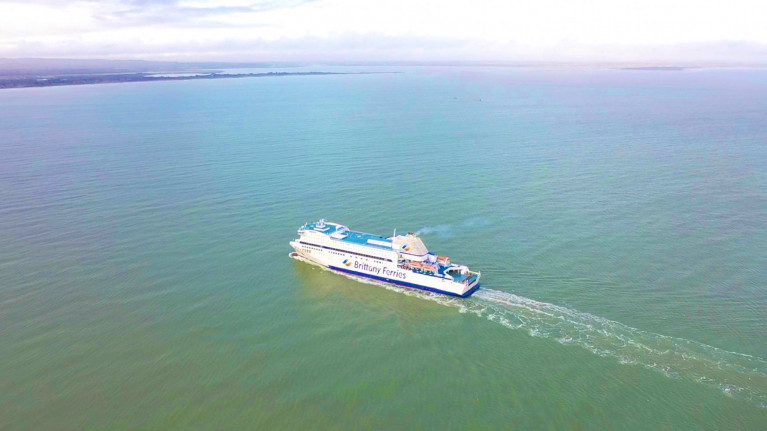Displaying items by tag: IrelandBrittany
Brittany Ferries New Four Freight Route Rotation Completes first Circuit in Rosslare Europort
Brittany Ferries this afternoon marked its first completion of operating the new four 'freight' route network of Ireland-France links that began running from Rosslare Europort on this day last week, writes Jehan Ashmore.
The Armorique which launched the 'Brexit-bypass' routes last Thursday, was to increase much needed freight vehicle space on direct ro-ro services to and from mainland Europe. This was also a first for the operator by linking Wexford and Brittany via St. Malo.
Last night the ferry had sailed from Roscoff overnight and arrived back to Rosslare this afternoon and on scheduled (1400) despite the weather.
Irish hauliers and other customers can avoid the UK landbridge and associated impact on EU/Brexit border trade with Brittany Ferries enhanced choice of four routes: they are Roscoff-St.Malo, Rosslare-Roscoff and Cork-St. Malo and Cork-Roscoff. For full rotation see earlier report.
Armorique will load freight trucks and drivers before the whole operation begins again with the cruiseferry repeating the rotation of routes linking Wexford, Brittany and Munster (as also reported). The sailing starts at 20.00hrs tonight and arrives in St. Malo the next day at 17.10.
In addition the Breton operator has more freight routes as this month a Rosslare-Cherbourg service was introduced complimenting last year's opening of the Rosslare-Bilbao route in northern Spain.
DFDS, operator of the new route to Dunkirk, using a trio of ferries among them the chartered Drotten vacated the linkspan at Rosslare's outer pier to where Armorique arrived this afternoon.
Astern of the French flagged ferry was the inbound Stena Estrid which was pressed into service on the route from Cherbourg, having been redeployed in recent weeks from the Dublin-Holyhead route.
Taking over these Irish Sea sailings saw Stena Horizon step in, the ropax was the original ferry that inaugurated the Ireland-France service under the banner of Celtic Link Ferries. In 2014, the route along with the same ferry, then Celtic Horizon was acquired by the Swedish operator, which was a first for the company to have a direct Ireland-mainland Europe route.
While Brittany Ferries have considerably taken action with these new routes, they do not have any freight marketshare based out of Dublin Port from where Irish Ferries and most recently Stena Line added a service directly to Cherbourg.
The port in Normandy is now the busiest in terms of direct ro-ro operations linking France-Ireland with two routes and operated by the three ferry firms providing a total of four services.

























































